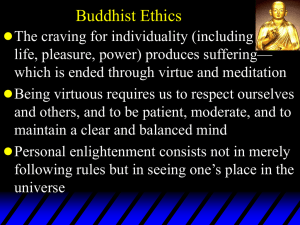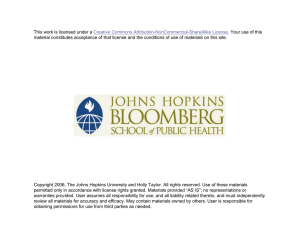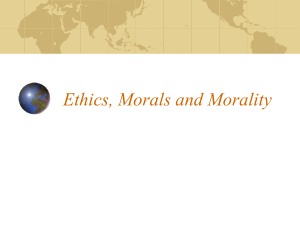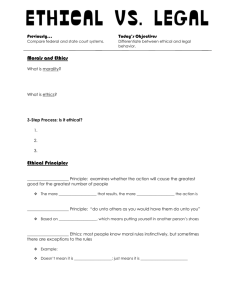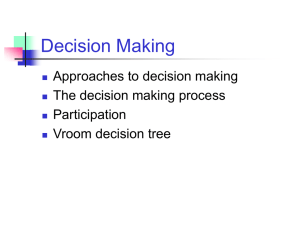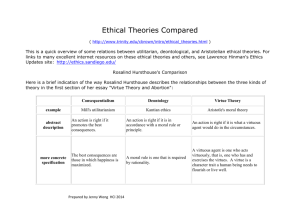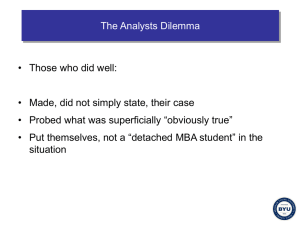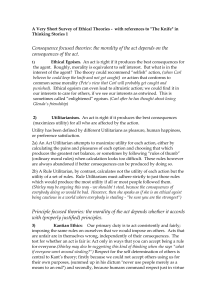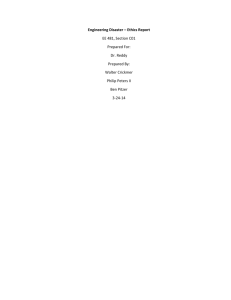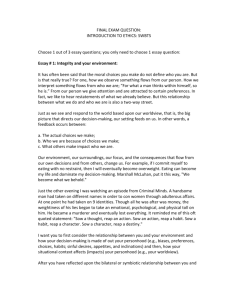Ethics Paper
advertisement
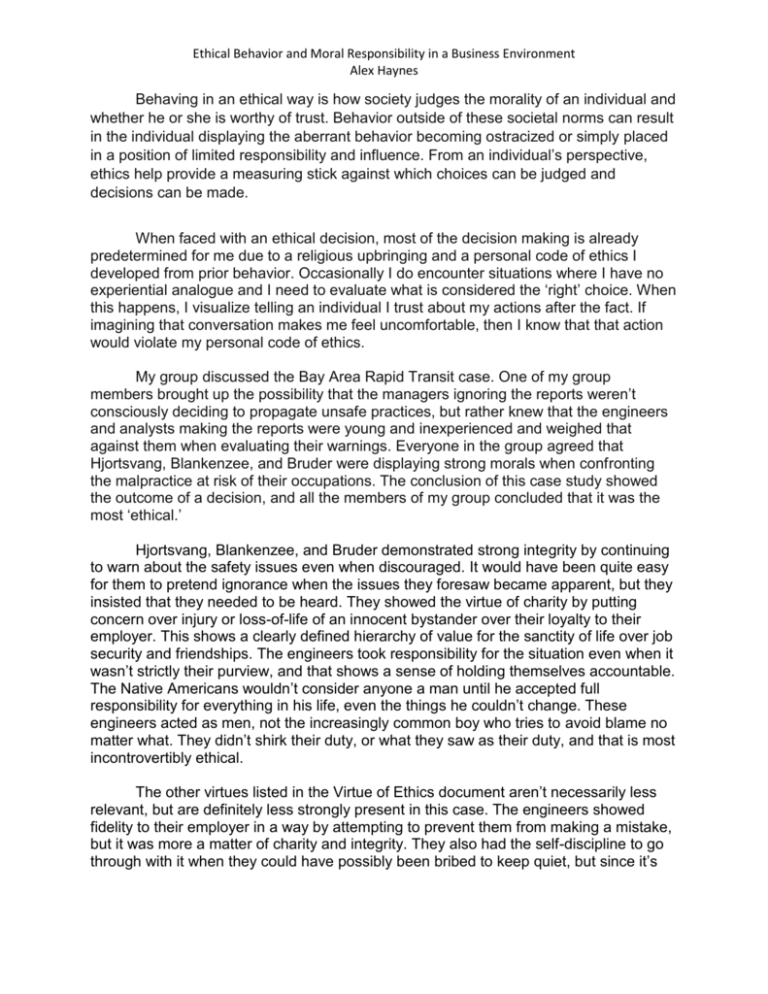
Ethical Behavior and Moral Responsibility in a Business Environment Alex Haynes Behaving in an ethical way is how society judges the morality of an individual and whether he or she is worthy of trust. Behavior outside of these societal norms can result in the individual displaying the aberrant behavior becoming ostracized or simply placed in a position of limited responsibility and influence. From an individual’s perspective, ethics help provide a measuring stick against which choices can be judged and decisions can be made. When faced with an ethical decision, most of the decision making is already predetermined for me due to a religious upbringing and a personal code of ethics I developed from prior behavior. Occasionally I do encounter situations where I have no experiential analogue and I need to evaluate what is considered the ‘right’ choice. When this happens, I visualize telling an individual I trust about my actions after the fact. If imagining that conversation makes me feel uncomfortable, then I know that that action would violate my personal code of ethics. My group discussed the Bay Area Rapid Transit case. One of my group members brought up the possibility that the managers ignoring the reports weren’t consciously deciding to propagate unsafe practices, but rather knew that the engineers and analysts making the reports were young and inexperienced and weighed that against them when evaluating their warnings. Everyone in the group agreed that Hjortsvang, Blankenzee, and Bruder were displaying strong morals when confronting the malpractice at risk of their occupations. The conclusion of this case study showed the outcome of a decision, and all the members of my group concluded that it was the most ‘ethical.’ Hjortsvang, Blankenzee, and Bruder demonstrated strong integrity by continuing to warn about the safety issues even when discouraged. It would have been quite easy for them to pretend ignorance when the issues they foresaw became apparent, but they insisted that they needed to be heard. They showed the virtue of charity by putting concern over injury or loss-of-life of an innocent bystander over their loyalty to their employer. This shows a clearly defined hierarchy of value for the sanctity of life over job security and friendships. The engineers took responsibility for the situation even when it wasn’t strictly their purview, and that shows a sense of holding themselves accountable. The Native Americans wouldn’t consider anyone a man until he accepted full responsibility for everything in his life, even the things he couldn’t change. These engineers acted as men, not the increasingly common boy who tries to avoid blame no matter what. They didn’t shirk their duty, or what they saw as their duty, and that is most incontrovertibly ethical. The other virtues listed in the Virtue of Ethics document aren’t necessarily less relevant, but are definitely less strongly present in this case. The engineers showed fidelity to their employer in a way by attempting to prevent them from making a mistake, but it was more a matter of charity and integrity. They also had the self-discipline to go through with it when they could have possibly been bribed to keep quiet, but since it’s Ethical Behavior and Moral Responsibility in a Business Environment Alex Haynes not clearly stated that bribes were offered this virtue is a non-issue. Honesty is inherent in integrity, and therefore wasn’t worth emphasizing after highlighting integrity so well. Another virtue I feel is particularly relevant to this case study but isn’t listed in the Virtue of Ethics is the concept of Satyagraha. This is a Hindi term coined by Mahatma Gandhi. It loosely translates as an insistence on truth, but I prefer to think of it as the willingness to endure great personal suffering in order to do what’s right. You bear what must be borne. This is similar to integrity, but is distinct because the virtue of satyagraha attempts to bring others around to a moral point of view, while men of integrity often stand alone. These men didn’t simply report the issues and stand back, they attempted to make the changes they knew were necessary at every level of management they could reach. To me, that is satyagraha at its core.

